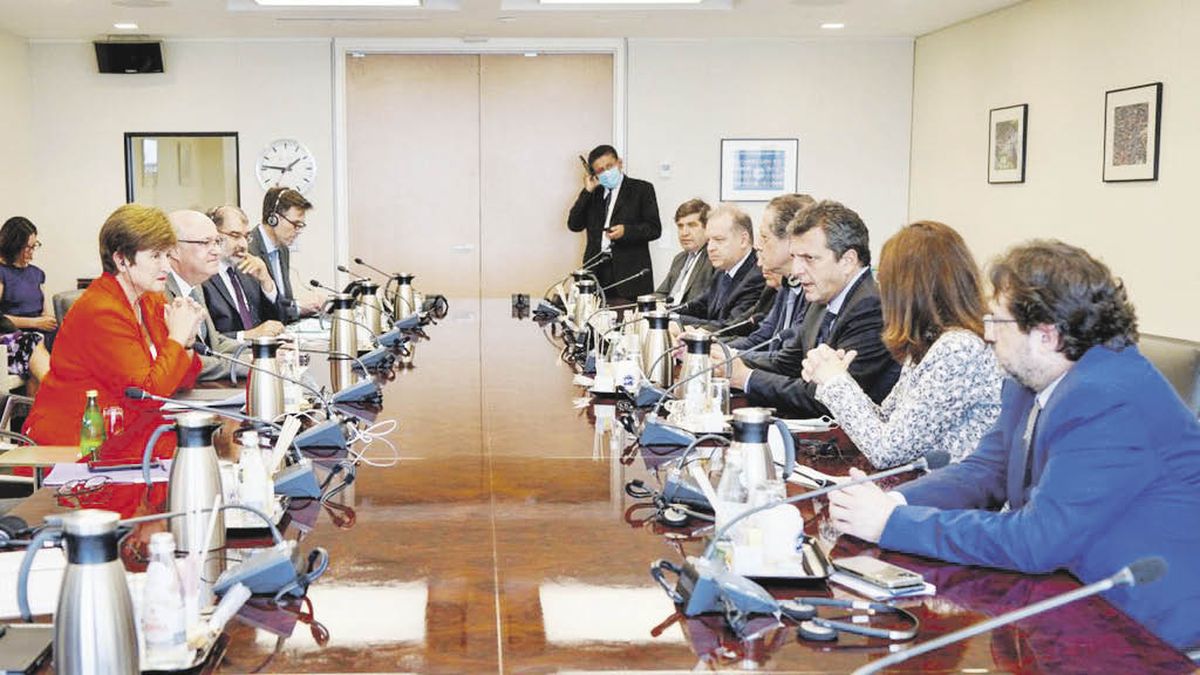It will not be easy for the economic team to recompose the fiscal accounts without modifying the agreement with the International Monetary Fund (IMF). in light of the result of the National Public Sector for the first quarter, a fact that was known at the end of last week.
According to estimates from the Argentine Institute for Fiscal Analysis (IARAF), between April and December the government should make an average monthly adjustment of 0.16 points of GDP if it wanted to reach the 1.9% agreed in March of last year by Martín Guzmán when he closed the extended facilities agreement with the credit agency.
The estimate of the entity that leads the economist Nadín Argañaraz is that between January and March a red equivalent to 0.42% of GDP was reached, which in concrete numbers is $689,000 million. The distance that existed with the objective of 2023 for the remaining months would be 1.48 points of GDP. But to this we must add 0.3 points of property income that were used in 2022 (which cannot be used this year because the agreement establishes it) and half a point more due to the effect of the drought on fiscal resources.
“Between April and December the primary fiscal deficit would be 2.9% of GDP (without extra income and with the drought effect) and should be 1.48%. Therefore, the fiscal effort for the period to meet the goal is 1.4%, that is, an average monthly reduction of 0.16 points of GDP,” says Argañaráz.
About, the economist Hernán Letcher, from the Argentine Political Economy Center (CEPA), maintains that the accumulated quarterly primary deficit, which is the one taken into account in the IMF methodology, reached $690,000 million and it would have generated a breach of the IMF goal (for almost $250,000 million).
“For the IMF to approve the fifth review, which will begin on June 10, there should be a change in the goals or the request for another waiver. (remember that it would also be requested for international reserves)”, said Letcher.
The economist warns in a report that “Going forward, from the starting point, the fiscal goal for the second quarter starts difficult to meet.”
“In this sense, and knowing that a good part of the problem is explained by the drought, the most logical thing would be for the Government and the IMF to agree on a change in the goals established by the program,” he said.
By your side, The consultancy Ecolatina states that the drought had a devastating effect on public sector tax revenues that overshadowed the adjustment of expenses in the first quarter, which came to about 17 real points.
“If the collection for Export Duties had remained stable in real terms, the primary red in the first quarter would have been barely 40% of what was evidencedand it would have exceeded the agreed goal cwith the IMF”, says the consultancy in one of its latest reports. Ecolatina points out that “after failing to meet both the goal of accumulation of international reserves and the fiscal one, we will have to be attentive to the position taken by the IMF regarding the impact of the drought during the first quarter”.
“The possibility of meeting the red of 1.9% of GDP this year is very challenging (if it is not modified with the reconfiguration of the program). Even recalibrating the goal, the question will lie in the availability of financing to cover this greater gap, ”says the report.
Source: Ambito




